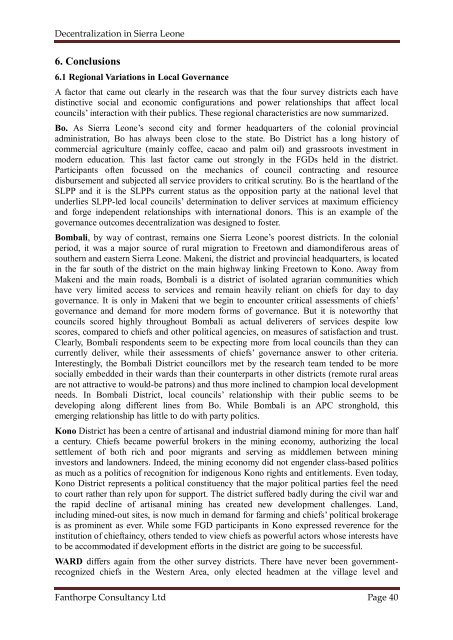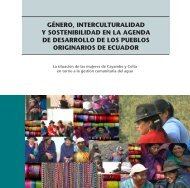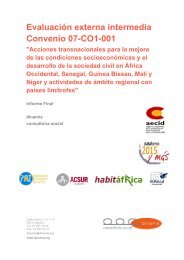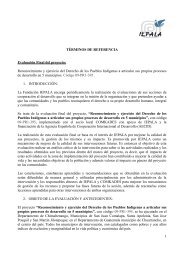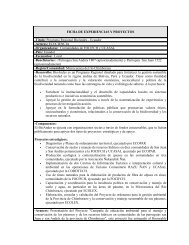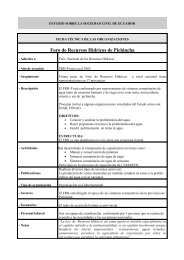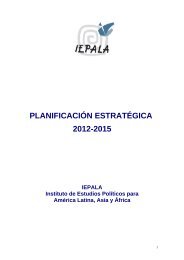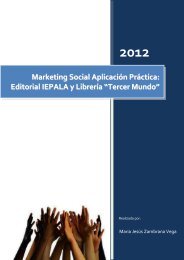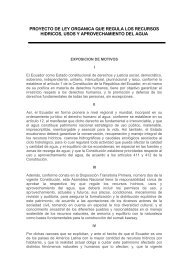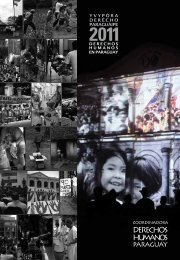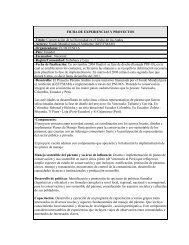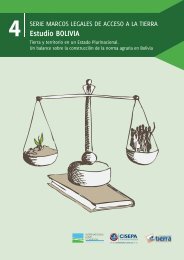Decentralization in Sierra Leone - Research for Development
Decentralization in Sierra Leone - Research for Development
Decentralization in Sierra Leone - Research for Development
Create successful ePaper yourself
Turn your PDF publications into a flip-book with our unique Google optimized e-Paper software.
<strong>Decentralization</strong> <strong>in</strong> <strong>Sierra</strong> <strong>Leone</strong>6. Conclusions6.1 Regional Variations <strong>in</strong> Local GovernanceA factor that came out clearly <strong>in</strong> the research was that the four survey districts each havedist<strong>in</strong>ctive social and economic configurations and power relationships that affect localcouncils’ <strong>in</strong>teraction with their publics. These regional characteristics are now summarized.Bo. As <strong>Sierra</strong> <strong>Leone</strong>’s second city and <strong>for</strong>mer headquarters of the colonial prov<strong>in</strong>cialadm<strong>in</strong>istration, Bo has always been close to the state. Bo District has a long history ofcommercial agriculture (ma<strong>in</strong>ly coffee, cacao and palm oil) and grassroots <strong>in</strong>vestment <strong>in</strong>modern education. This last factor came out strongly <strong>in</strong> the FGDs held <strong>in</strong> the district.Participants often focussed on the mechanics of council contract<strong>in</strong>g and resourcedisbursement and subjected all service providers to critical scrut<strong>in</strong>y. Bo is the heartland of theSLPP and it is the SLPPs current status as the opposition party at the national level thatunderlies SLPP-led local councils’ determ<strong>in</strong>ation to deliver services at maximum efficiencyand <strong>for</strong>ge <strong>in</strong>dependent relationships with <strong>in</strong>ternational donors. This is an example of thegovernance outcomes decentralization was designed to foster.Bombali, by way of contrast, rema<strong>in</strong>s one <strong>Sierra</strong> <strong>Leone</strong>’s poorest districts. In the colonialperiod, it was a major source of rural migration to Freetown and diamondiferous areas ofsouthern and eastern <strong>Sierra</strong> <strong>Leone</strong>. Makeni, the district and prov<strong>in</strong>cial headquarters, is located<strong>in</strong> the far south of the district on the ma<strong>in</strong> highway l<strong>in</strong>k<strong>in</strong>g Freetown to Kono. Away fromMakeni and the ma<strong>in</strong> roads, Bombali is a district of isolated agrarian communities whichhave very limited access to services and rema<strong>in</strong> heavily reliant on chiefs <strong>for</strong> day to daygovernance. It is only <strong>in</strong> Makeni that we beg<strong>in</strong> to encounter critical assessments of chiefs’governance and demand <strong>for</strong> more modern <strong>for</strong>ms of governance. But it is noteworthy thatcouncils scored highly throughout Bombali as actual deliverers of services despite lowscores, compared to chiefs and other political agencies, on measures of satisfaction and trust.Clearly, Bombali respondents seem to be expect<strong>in</strong>g more from local councils than they cancurrently deliver, while their assessments of chiefs’ governance answer to other criteria.Interest<strong>in</strong>gly, the Bombali District councillors met by the research team tended to be moresocially embedded <strong>in</strong> their wards than their counterparts <strong>in</strong> other districts (remote rural areasare not attractive to would-be patrons) and thus more <strong>in</strong>cl<strong>in</strong>ed to champion local developmentneeds. In Bombali District, local councils’ relationship with their public seems to bedevelop<strong>in</strong>g along different l<strong>in</strong>es from Bo. While Bombali is an APC stronghold, thisemerg<strong>in</strong>g relationship has little to do with party politics.Kono District has been a centre of artisanal and <strong>in</strong>dustrial diamond m<strong>in</strong><strong>in</strong>g <strong>for</strong> more than halfa century. Chiefs became powerful brokers <strong>in</strong> the m<strong>in</strong><strong>in</strong>g economy, authoriz<strong>in</strong>g the localsettlement of both rich and poor migrants and serv<strong>in</strong>g as middlemen between m<strong>in</strong><strong>in</strong>g<strong>in</strong>vestors and landowners. Indeed, the m<strong>in</strong><strong>in</strong>g economy did not engender class-based politicsas much as a politics of recognition <strong>for</strong> <strong>in</strong>digenous Kono rights and entitlements. Even today,Kono District represents a political constituency that the major political parties feel the needto court rather than rely upon <strong>for</strong> support. The district suffered badly dur<strong>in</strong>g the civil war andthe rapid decl<strong>in</strong>e of artisanal m<strong>in</strong><strong>in</strong>g has created new development challenges. Land,<strong>in</strong>clud<strong>in</strong>g m<strong>in</strong>ed-out sites, is now much <strong>in</strong> demand <strong>for</strong> farm<strong>in</strong>g and chiefs’ political brokerageis as prom<strong>in</strong>ent as ever. While some FGD participants <strong>in</strong> Kono expressed reverence <strong>for</strong> the<strong>in</strong>stitution of chiefta<strong>in</strong>cy, others tended to view chiefs as powerful actors whose <strong>in</strong>terests haveto be accommodated if development ef<strong>for</strong>ts <strong>in</strong> the district are go<strong>in</strong>g to be successful.WARD differs aga<strong>in</strong> from the other survey districts. There have never been governmentrecognizedchiefs <strong>in</strong> the Western Area, only elected headmen at the village level andFanthorpe Consultancy Ltd Page 40


